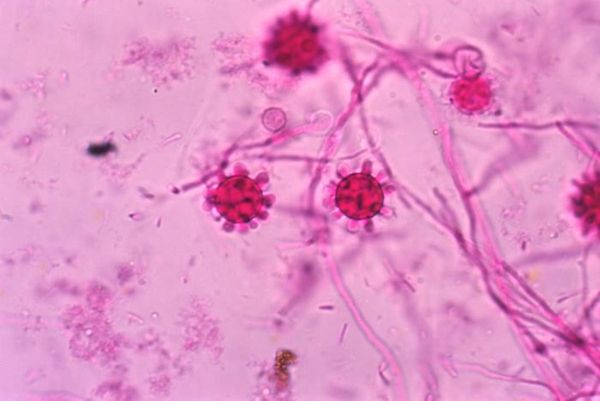
The official Florida governor’s website invites visitors to “Meet Governor DeSantis”. But anyone who clicks on that option is greeted with the message “Governor Ron DeSantis Biography – coming soon”, along with his photo and a big white space.
DeSantis’s admirers project on to that blank page the ideal of a strong chief executive, “anti-woke” warrior and consistent election winner. His detractors fill the vacuum with warnings that the Florida governor represents “Trump 2.0”, “Trump with a brain” and “Trump without the circus”.
Six months ago DeSantis was being hailed as the future of a Republican party tired of former US president Donald Trump’s losing streak. He had offered blueprints for beating Democrats in elections and for exporting a rightwing agenda nationwide: “Make America Florida.”
But after filing papers with the Federal Election Commission on Wednesday to seek the 2024 Republican presidential nomination, DeSantis still has everything to prove about his readiness for the ultimate stage.
Florida political insiders suggest that he is undercooked and will fail the “likability test” – which candidate would you rather have a beer with?
“I have been saying DeSantis was an overpriced political stock for a year and a half,” said Rick Wilson, a Republican strategist who has been involved in more than 30 political campaigns in the state.
“This guy is all hat and no cattle. He doesn’t have that natural verbal and political grace that you need to pull off a win against Trump, who is a powerful performer on stage.”
DeSantis does have youth on his side. He was born 44 years ago in Jacksonville, Florida, and grew up in Dunedin, a suburb of Tampa, but writes in his book, The Courage to Be Free, that his upbringing reflected his parents’ midwestern working-class background: “This made me God-fearing, hard-working, and America-loving.”
In a biographical detail as American as apple pie and sure to resonate in the heartland, the young DeSantis lived and breathed baseball. His team in Dunedin reached the Little League World Series in 1991. He served as captain of the varsity baseball team as an undergraduate at Yale University; his Yale jersey hangs in his office in Florida’s capitol building in Tallahassee.
Christian Ziegler, chairman of the Florida Republican party, said: “Even to this day he knows baseball facts when people bring it up. It was interesting being at a stadium with him: someone started talking baseball and he immediately stopped whatever conversation he was having and started rattling off stories about various players.
“He’s very passionate about sports and can have great conversations with people around sports as well.”
After Yale, DeSantis taught at Darlington school, a private boarding school in Rome, Georgia, in the 2001-02 school year. One former student told the New York Times that he taught civil war history in a way that sounded to her like an attempt to justify slavery.
Then, while at Harvard Law School, DeSantis was commissioned as an officer in the navy and, on graduation, joined the judge advocate general corps as an attorney. He was assigned to the military prison camp at Guantánamo Bay in Cuba, where he oversaw the treatment of detainees. Later he was deployed to Iraq to advise a team of Navy Seals.
In 2009 DeSantis married Casey Black, a TV reporter, at Disney World (which he now admits is “kind of ironic”, given his subsequent feud with the entertainment company). The couple have three children: Madison, Mason and Mamie. Casey, 42, remains his closest adviser.

DeSantis worked briefly as an assistant US attorney in Florida before a successful bid for a House of Representatives seat in 2012. In Congress he helped create the hard-right Freedom Caucus focused on “small government” and implacable opposition to then president Barack Obama.
After a short-lived attempt to become a senator, he ran for governor in 2018. He was endorsed by then president Trump, whom he praised on the campaign trail and in a TV advert, and ultimately won by a tight margin. Trump has since taken credit for DeSantis’s victory and accused his fellow Republican of being disloyal for challenging him for the White House.
The new governor did not take the narrowness of his victory as a hint that he should seek consensus; instead he centralised power in the governor’s mansion, embraced a pugnacious CEO style and declared that he wants to take “all the meat off the bone”.
He has shaped legislation, punished critics, sparred with journalists and filled the state’s courts, offices and boards with allies. Supporters say his no-nonsense, get-things-done style has made Florida boom. Opponents say he has authoritarian impulses and a mean streak a mile wide.
The turning point in DeSantis’s political career was the coronavirus pandemic. He opposed many of the policies advocated by the federal government to prevent the spread of Covid. He resisted mask and vaccine mandates and was determined to keep Florida businesses and tourism destinations open during most of the pandemic.
His defenders argue that his approach was driven by data and rooted in science because he had primarily been a policy wonk up to that point. But the media backlash helped him find his voice as a mini Trump: an antagonist of “liberal elites” and darling of Fox News but without the rough edges. He was more disciplined and intentional.
Ziegler said: “During Covid, he started doing press conferences and the press started pushing back on him. And then he started punching them back – and then, all of a sudden, the public jumped on it, and they loved it that they had a fighter in there for them. I think he took note of that.”

DeSantis’s political signature is his foray into the US culture wars, summed up in his proclamation: “Florida is where woke goes to die!” He has led the Republican fightback against what he argues are extreme progressive polices favoured by educators and corporations. He imposed limits on how race, gender identity and sexuality can be taught in schools, forcing some teachers to remove books from their libraries. He banned transgender athletes from playing girls’ and women’s sports.
Ziegler believes that DeSantis’s status as a father of young children helps explain his desire to fight for parents’ rights. “This is a guy that always loves being with his kids and his family. He’s either working as governor or he’s out at his kids’ T-ball games and Little League. You don’t hear that. You don’t see that. Frankly, I think he should broadcast that more.”
Last year DeSantis won re-election by nearly 20 percentage points in Florida, a one-time battleground state. He has since signed laws banning abortions after six weeks of pregnancy, easing restrictions for people to carry concealed firearms and ending the state’s unanimous jury requirement for death penalty cases.
But his battle with the Walt Disney Company over its Florida theme park has unnerved some donors. His mixed messaging on continued US support for Ukraine and reluctance to respond to Trump’s attacks have also called into question his political acumen. He has even been mocked over a report that he ate a chocolate pudding dessert not with a spoon but with three fingers.
Now, with Trump surging ahead of him in the polls, other Republican candidates smell blood.
DeSantis will be under pressure to make a compelling case as to why he wants to be president. To some, his motivations for entering politics remain nebulous. Ron Klein, a former Democratic congressman from Florida who is chair of the Jewish Democratic Council of America, said: “I never heard the typical thing that I know I presented, and many other people present, about why you did this in the first place.
“What was that single issue that drove you out there? What happened in your childhood or something your parents did or some influence around you that got you? I never heard that or saw it. I don’t remember some personal driving story about why he was running for office or why he wanted to be governor of Florida.”
• This article was amended on 25 May 2023 because an earlier version gave 2010 as the year DeSantis married Casey Black. The marriage was in 2009.







